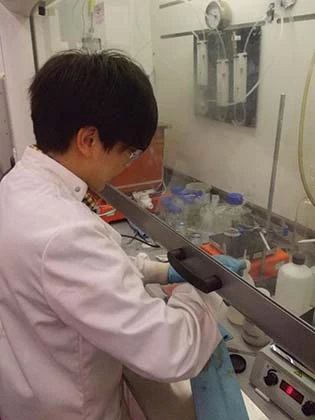
A process to recycle high-value materials from waste fuel cells has been developed in a collaborative project between resource recovery specialist Axion Consulting, Johnson Matthey Fuel Cells Ltd. and Technical Fibre Products (TFP). The project was funded by Innovate UK.
The goal of the recovery project is to establish the technical and economic feasibility of the recovery and re-use of high-value materials from fuel cell membrane electrode assemblies. Ultimately, the project seeks to establish the potential for a new U.K.-based global recycling business.
Axion Consulting says the partners have proven the initial process steps and further research is underway on evaluating the viability for commercial operation and developing a take-back system for end-of-life fuel cells from products such as forklift trucks, mobile phone masts, electric vehicles and small portable power packs for laptops and other products.
The project’s structure includes Axion taking the lead on developing the primary recycling routes; TFP leading on the recovery and re-use of the carbon fibers; and Johnson Matthey Fuel Cells taking the lead on the re-use of materials in fuel cells and the final recovery and recycling of the precious metals.
“It offers exciting potential using really elegant chemistry,” says Roger Morton, Axion Consulting’s director. “The ability to recycle fuel cells is important as they will be powering the vehicles and technology of the future, which needs to be cost-effective if they are to be acceptable to both consumers and manufacturers.”
“To make fuel cells more cost-effective, we need to reduce their whole-life cost and maximize the value of the resources they contain, such as platinum, high-value polymers and carbon fibre. Recycling them would also improve resource-efficiency and security of supply for these expensive and critical materials,” Morton adds.
A feature of the project involves the design for recycling so the products are easier to recycle. Key challenges involve the collection of widely distributed fuel cells and the technical hurdles presented in material recovery.
Experimental trials will be undertaken at Axion’s laboratories at its Salford, U.K., recycling facility.
Roger adds, “The hydrogen economy will continue to develop and grow; it is the future. In 10 to 15 years’ time, significant quantities of fuel cells will reach the end of their lives and having the technological capability to recover their valuable resources will be crucial.”
Latest from Recycling Today
- Reconomy brands receive platinum ratings from EcoVadis
- Sortera Technologies ‘owning and operating’ aluminum sorting solutions
- IDTechEx sees electric-powered construction equipment growth
- Global steel output recedes in November
- Fitch Ratings sees reasons for steel optimism in 2025
- P+PB adds new board members
- BlueScope, BHP & Rio Tinto select site for electric smelting furnace pilot plant
- Magnomer joins Canada Plastics Pact





